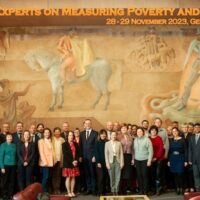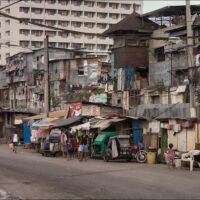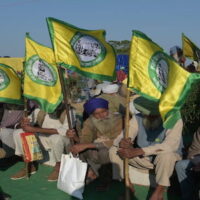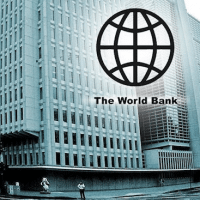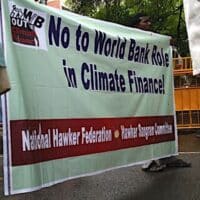-
How not to measure poverty
Several international organisations are now engaged in the business of measuring what they call “poverty”.
-
Neo-liberalism has increased mass poverty
It is not a difficult proposition to substantially reduce poverty through redistributive measures. About one tenth of India’s GDP would need to be devoted to providing adequate food for the population, basic and comprehensive healthcare, compulsory free education, employment guarantee and old age pension; for which additional taxation of 7 per cent of GDP that the rich and super-rich can easily bear, would be needed. Combined with vigorous implementation of the existing National Food Security Act 2013 and the MG National Rural Employment Guarantee Act, genuine large-scale reduction of poverty would result
-
Farmers’ protest in India reignites: A struggle for the future of food and agriculture
In 2021, after a year-long protest, India’s farmers brought about the repeal of three farm laws that were intended to ‘liberalize’ the agriculture sector. Now, in 2024, farmers are again protesting. The underlying issues and the facilitation of the neoliberal corporatization of farming that sparked the previous protest remain and have not been resolved.
-
Debt-pushing as financial inclusion
Ajay Banga was anointed World Bank president for promoting financial inclusion. Thanks to its success and interest rate hikes, more poor people are drowning in debt as consumer prices rise.
-
World Bank climate finance plan little help, unfair
The World Bank plans to use public funds to subsidize private finance, ostensibly to mobilize much more capital to address the climate crisis. But the new plan is not the solution it purports to be.

